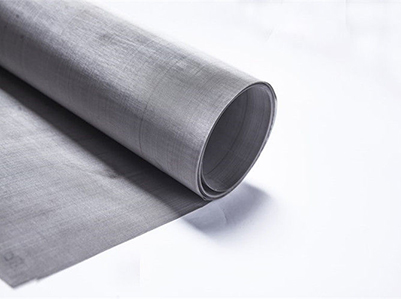![]()
The manganese and nickel in the
stainless steel mesh are alloy elements that promote the formation of austenite, so they can replace nickel (or part of nickel), but manganese itself is not corrosion resistant. Therefore, manganese cannot be used as an alloying element in stainless steel screens. The effect of manganese on austenite is similar to that of nickel. Instead of forming austenite, it reduces the critical cooling rate of steel, improves the stability of austenite during cooling, and inhibits the decomposition of austenite.
The austenite formed at high temperature can be maintained at normal temperature, and the influence of manganese on the corrosion resistance of steel is not significant. This is because manganese has almost no effect on increasing the potential of the solid solution electrode, and the protective effect of oxide film formation is very low. Austenitic steels used in industry cannot be used as stainless steel screens, so they are not stainless steel screens.
The complete use of manganese instead of nickel cannot solve the corrosion resistance of stainless steel mesh. This is because the chromium-manganese steel should obtain complete austenite. In addition to proper chromium and manganese content, carbon content should also be considered. When the carbon content in the steel is low, it is difficult to obtain a complete austenite structure. If the carbon content in the steel is increased, the corrosion resistance of the steel will be reduced. In addition, the chromium-manganese stainless steel is heated at 500-800°C, and the crystals of the steel are heated. The resistance to intergranular corrosion will be very low. The addition of titanium and niobium will not reduce its susceptibility to intergranular corrosion.

